American Revolution Symposium 2022: There is More to the Story
Friday, April 22, 2022Time 10:00 AM - 3:30 PM
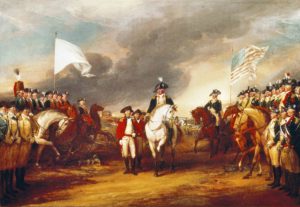 American Revolution Symposium 2022: There Is More To The Story
American Revolution Symposium 2022: There Is More To The Story
Wednesday, April 20 – Friday, April 22
The symposium will look at the American Revolution from its origins to 1783 as 13 of Britain’s North American colonies rejected its imperial rule. The America’s Conflicts lecture series will present a three-day symposium on this epic political and military struggle, going beyond thinking of the Revolution as a story about facts and dates. This symposium will explore the people and events in the American British Colonies that gives a different look at the American Revolution.
Historians from all over the world will be here in Boca Grande to share their knowledge.
Sponsor the whole series, 8 lectures over 3 days: $800/person ($440 charitable, $360 tickets)
Sponsor individual lectures: $160/person ($115 charitable, $45 ticket)
General Admission: $45/lecture or Reserved Seating: $75/lecture
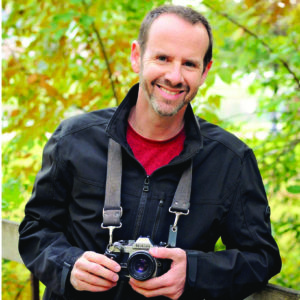
The Whole Revolutionary War in 30 minutes
Garry Adelman, Author and Historian
Wednesday, April 20 Ι 10:00am Ι Auditorium
Garry Adelman is the award-winning author, co-author, or editor of 20 books and 50 Civil War articles. He is the vice president of the Center for Civil War Photography and has been a Licensed Battlefield Guide at Gettysburg for 25 years. He has lectured at hundreds of American Revolution and Civil War sites across the country, has appeared as a speaker on numerous televised documentaries. He works full time as Chief Historian at the American Battlefield Trust. Whether you are a novice or longtime expert, join Garry Adelman as he endeavors to cover all that is the American Revolution and bring it all together in one energetic and informative presentation. The Revolutionary War was a wildly complex event, spanning every socioeconomic, military, cultural, and geographic cross section of the colonies, and far beyond. Just one slice of any of these subjects could occupy a lifetime of research. And yet, the massive conflagration consisted of a graspable list of truly key events, grand military movements, and questions answered.

People & Cultures on the Move: Setting the Stage for a Revolution
Patrick Griffin, Historian of America, Britain, and Ireland
Wednesday, April 20 Ι 2:00pm Ι Auditorium
Patrick Griffin is the Madden-Hennebry Professor of History and director of the Keough-Naughton Institute for Irish Studies at the University of Notre Dame. His work explores the intersection of colonial American and early modern Irish and British history; including the movement of peoples and cultures across the Atlantic Ocean, the process of adaptation, colonization and violence, revolution and rebellion, and the ways Ireland, Britain and America were linked and how they differed during the 17th and 18th centuries. Griffin offers a new interpretation and historical synthesis of America’s most formative period. He illustrates how, between 1763 and 1800, Americans moved from one mythic conception of who they were to a very different one, a change that was evident in word and in image. America’s Revolution captures these dynamics by exploring origins and outcomes – as well as the violent, uncertain, and liberating process of revolution – that bridged the two. Following America’s Revolution, Griffin’s most recent book is entitled The Townshend Moment: The Making of Empire and Revolution in the Eighteenth Century, and he is now working on a study of the Age of Revolution.
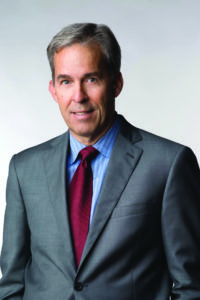
The British Are Coming
Rick Atkinson, Pulitzer-Prize Winning Author & Military Historian
Wednesday, April 20 Ι 7:00pm Ι Auditorium
Rick Atkinson, author of the Pulitzer Prize-winning An Army at Dawn and two other superb books about World War II, has long been admired for his deeply researched, stunningly vivid narrative histories. Now he has turned his attention to a new war with The British Are Coming: The War for America, Lexington to Princeton, 1775-1777, a New York Times bestseller and winner of the 2020 George Washington Prize, among other awards. “To say that Atkinson can tell a story is like saying Sinatra can sing,” reviewer Joseph J. Ellis wrote in the Times Book Review.
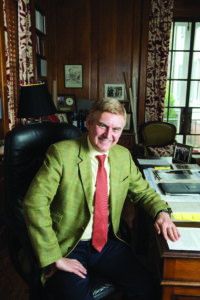
The First Salute: The Caribbean, St. Eustatius, and the American Revolutionary War
Andrew O’Shaughnessy, Vice President of the Thomas Jefferson Foundation
Friday, April 22 Ι 10:00am Ι Auditorium
(Switched from Thursday, 4/21, 10am)
Andrew O’Shaughnessy is Vice President of The Thomas Jefferson Foundation (Monticello), the Saunders Director of the Robert H. Smith International Center for Jefferson Studies and Professor of History at the University of Virginia. He received his undergraduate degree and doctorate from Oxford University. A Fellow of the Royal Historical Society, he is an editor of the Jeffersonian America series published by the University of Virginia Press. O’Shaughnessy will highlight the importance of the Caribbean and naval warfare to the outcome of the Revolutionary War. This talk is based on the title of Barbara Tuchman’s last book, which celebrated the first salute of the American flag by the Dutch island of St. Eustatius in 1776. The island became the main source of vital gunpowder supplies for the patriot cause and was to play a crucial role in the events leading up to the final British defeat at the Battle of Yorktown.
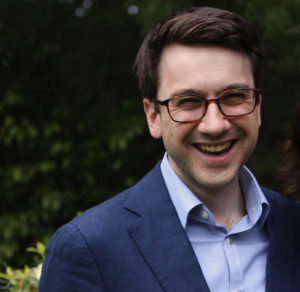
A Revolution for Empire: Politics, Profits, and the Problem of the Revolutionary Frontier
Michael A. Blaakman, Assistant Professor of History, Princeton University
Thursday, April 21 Ι 2:00pm Ι Auditorium
Michael Blaakman is a historian of revolutionary and early national America, whose scholarship focuses on politics, empires and North American borderlands. His talk explores changing ideas about the problems and promise of the West in the era of the American Revolution. In the 1760s, the British Empire enraged elite and ordinary colonists alike by declaring strict constraints on frontier expansion and protecting Indian lands beyond the Appalachians. Two decades later – after a costly war for independence, an economic depression, and a democratic upsurge – the American Congress charted a very different path, framing westward expansion as a solution to the Revolution’s most pressing social, political and fiscal problems. Meanwhile, speculators chased extravagant profits in an unprecedented real-estate boom that reached across millions of acres of Native American land. Blaakman’s talk will argue that the story of these competing visions for the frontier, from 1763 to 1787, reveals what was truly revolutionary about the American Revolution.
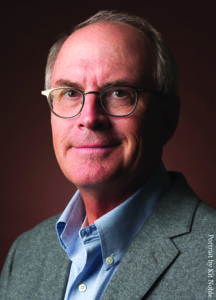
Reflections on the Revolutionary War
Nathaniel Philbrick, Author & Historian
Thursday, April 21 Ι 7:00pm Ι Auditorium
Nathaniel Philbrick is the bestselling author of three bestselling books about the American Revolution: Bunker Hill, winner of the New England Book Prize, Valiant Ambition, winner of the George Washington Book Prize, and In the Hurricane’s Eye, winner of the Commodore John Barry Book Award. In his books, Philbrick reconstructs the revolutionary landscape – geographic and ideological – in mesmerizing narratives of the robust, messy, blisteringly real origins of America. Philbrick will discuss what he has learned after a decade-long engagement with the American Revolution.
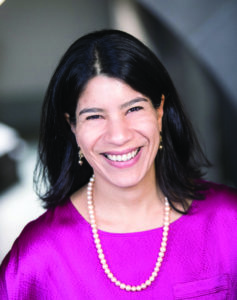
Liberty’s Exiles
Maya Jasanoff, Author & Coolidge Professor of History at Harvard
Thursday, April 21 Ι 10:00am Ι Auditorium
(Switched from Friday, 4/22, 10am)
Maya Jasanoff is the author of Liberty’s Exiles: American Loyalists in the Revolutionary World (2011), which received the National Book Critics Circle Award for Non-Fiction and the George Washington Book Prize. At the end of the American Revolution, sixty thousand Americans loyal to the British cause fled the United States and became refugees throughout the British Empire. Liberty’s Exiles tells their story. This surprising new account of the founding of the United States and the shaping of the post-revolutionary world traces extraordinary journeys like the one of Elizabeth Johnston, a young mother from Georgia, who led her growing family to Britain, Jamaica, and Canada, questing for a home; black loyalists such as David George, who escaped from slavery in Virginia and went on to found Baptist congregations in Nova Scotia and Sierra Leone; and Mohawk Indian leader Joseph Brant, who tried to find autonomy for his people in Ontario. Ambitious, original, and personality-filled, this book is at once an intimate narrative history and a provocative analysis that changes how we see the revolution’s “losers” and their legacies.
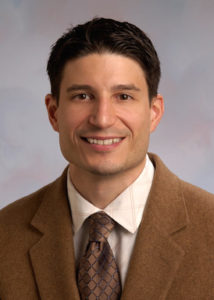
The Maritime Dimensions of the American Revolution
Christopher P. Magra, Professor of Early American History, University of Tennessee
Friday, April 22 Ι 2:00pm Ι Auditorium
Chris Magra is a critically acclaimed author and an award-winning teacher. He has published two books with Cambridge University Press on the maritime dimensions of the American Revolution. The Atlantic Ocean connected people in North America to a wider world. When the British government attempted to regulate commercial fishing and overseas trade, curtail smuggling, and promote naval impressment, Americans filed formal grievances, rioted, and in one dramatic instance they killed a British naval officer. American resentment toward and resistance against British authority were deeply moored in maritime matters. Merchants and mariners, rich and poor, converted this resentment and resistance into revolution in waterfront spaces up and down the seaboard of North America.
To sponsor this series or any individual lectures, please call the office at (941) 964-0827.
Sponsors will enjoy preferred seating in the auditorium, as well as a special “opening night” sponsor reception on Tuesday evening, prior to the symposium kick-off.
Tickets for individual lectures are available for purchase by calling the office at (941) 964-0827 or online at www.friendsofbocagrande.org
